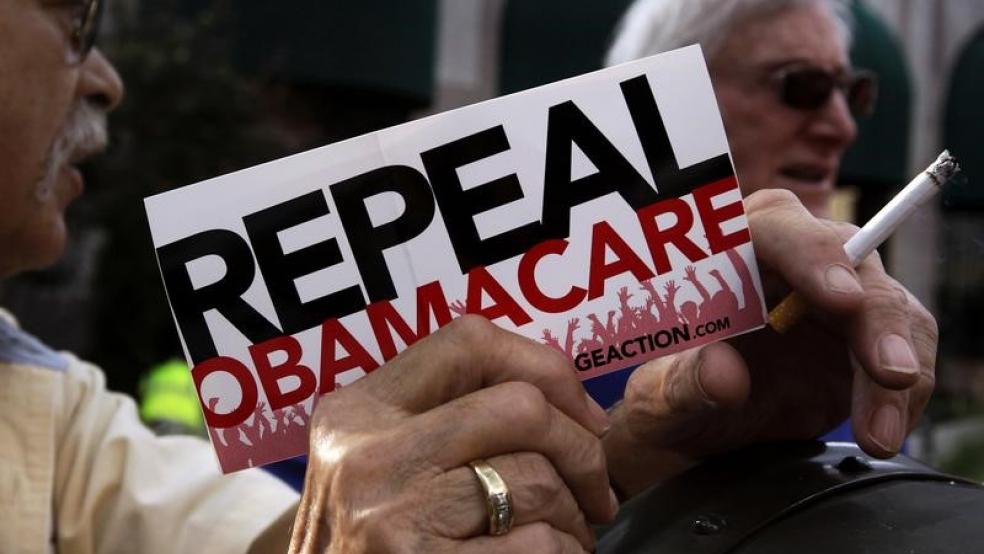With just five days left for Republicans to pass an Obamacare repeal bill in 2017 without fear of facing a Democratic filibuster, the push by Sens. Bill Cassidy (R-LA) and Lindsey Graham (R-SC) entered a new phase Sunday night. Call it the “if at first you don’t succeed, try to buy the votes you need” stage. But even with the changes, the GOP’s health care reform effort looks to be on the verge of collapse…again.
What It Does: The revised legislation, formally introduced Monday, sweetens the deal for some states that just so happen to be home to senators who represent the deciding votes on the bill. The updated bill would still pool together Obamacare money for insurance subsidies and expanded Medicaid and deliver it to states in the form of block grants, but it changes the distribution of that funding. The bill also creates a carve-out allowing Alaska to get a 25 percent increase in federal Medicaid matching funds. And it makes it easier for states to roll back federal insurance regulations, a step that health care analyst Larry Levitt of the Kaiser Family Foundation says could leave people with pre-existing conditions priced out of insurance markets.
A state-by-state summary of the effects of the bill released by Cassidy shows Alaska gaining 3 percent from 2020 through 2026 compared to current law, Arizona getting 14 percent more, Kentucky getting 4 percent more and Maine gaining 43 percent. Some analysts charge that the updated numbers aren’t accurate because they don’t reflect Medicaid spending caps introduced by the legislation while treating reduced spending by states as a result of the elimination of Medicaid expansion as “savings.”
What It Means: “The substance of the Senate's latest health care bill is different from its predecessor, but the politics are not, in part because only a few Republican senators care about the substance of the bill,” Axios’s Sam Baker writes.
Sen. Rand Paul (R-KY) on Monday reiterated his opposition to the bill. Sen. John McCain (R-AZ) had objected to the bill on more fundamental grounds, saying last week that health care reform ought to go through a bipartisan process and regular order in the Senate. The current scramble hardly qualifies on either front. Sen. Susan Collins (R-ME) said Sunday that “it's very difficult for me to envision a scenario where I would end up voting for this bill.” The revisions don’t do much if anything to address her stated concerns. And Sen. Ted Cruz has also voiced concerns about the bill. “Right now, they don’t have my vote and I don't think they have Mike Lee’s vote either,” he said Sunday, referring to Utah’s junior senator. The changes haven’t gotten him to “yes.”
The Bottom Line: Even President Trump is skeptical about the bill’s chances of passing. “Looks like Susan Collins and some others who will vote against,” Trump said Monday during an interview with the Alabama-based “Rick & Bubba” radio show. “We’re going to lose two or three votes and that’s the end of that.”
One Other Complication: Even if this bill fails, the push to repeal Obamacare may not be over. Graham said Sunday that he and Sen. Ron Johnson (R-WI) would not vote for a 2018 budget resolution “that doesn’t allow the health care debate to continue.” Squeezing both health care and tax reform into the budget resolution may be possible, but it would further complicate an already difficult task for Republicans.
This article was updated at 4:15 p.m. on Monday, September 25.





